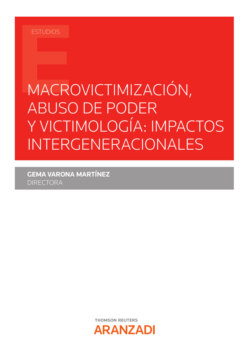Читать книгу Macrovictimización, abuso de poder y victimología: impactos intergeneracionales - Gema Varona Martínez - Страница 20
На сайте Литреса книга снята с продажи.
2.2. Victims of discrimination/vicarious retribution in response to terrorist attacks
ОглавлениеThe link between inter-religious/ethnic discrimination and terrorism has been stressed by the Council of Europe since 199986. Emphasizing that discrimination and lack of religious/cultural tolerance favor the spread of terrorism87, the Council has frequently stated that the fight against terrorism requires to strengthen social cohesion and to promote multicultural and inter-religious dialogue88.
Several instruments/provisions also aim to protect the rights of the people who suffer discrimination as a result of the adoption or implementation of anti-terrorism measures. For instance, the 2005 Convention on the Prevention of Terrorism89 provides that the implementation and enforcement of terrorism prevention policies must exclude any arbitrary, discriminatory or racist treatment (par. 2), including in the field of extradition (article 21). Other instruments insist on the need to protect the rights of minority communities against the risk of reprisals and discrimination in reaction to terrorist attacks90. In this respect, Member States are invited to take appropriate measures to ensure the protection of minority groups often associated with terrorists and experiencing violent reactions to the attacks91. The Council also emphasizes that this indirect victimization is part of the terrorist strategy designed to destroy social solidarity and create a climate of interethnic/religious hatred92.
In order to strengthen the protection of the victims of such discrimination, the General Policy Recommendation n.° 8 on combating racism while fighting terrorism of 2004 calls on Member States to set up a specialized and independent body to combat racism and discrimination, by providing adequate support to victims of these acts and by assisting them to file complaints for any act of racism or discrimination resulting from the fight against terrorism93.
In its Declaration on Freedom of Expression and Information in the Media in the Context of the Fight against Terrorism of 2005, the Committee of Ministers encourages the media to promote a climate of mutual understanding and tolerance. It asks them to refrain from serving as a vehicle for the expression of racist or xenophobic feelings or hatred, by insisting on the distinction between terrorists and the group to which they belong or claim to belong94.
The Commissioner for Human Rights of the Council of Europe also insists on the need to protect minority communities against the risk of stigmatization by both the public opinion and public authorities. It also stresses that anti-terrorism measures should not be based on purely racial or religious grounds95.
